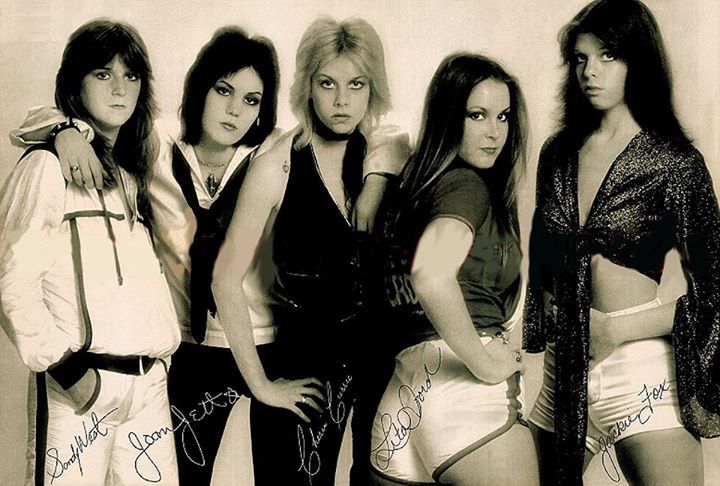
“You Drive Me Wild”: A Raw Anthem of Teenage Rebellion and Untamed Energy
Ah, The Runaways. Just hearing that name, a certain electricity courses through you, doesn’t it? For those of us who came of age in the 70s, or even those who just appreciate the raw, unpolished energy of pure rock and roll, The Runaways were more than just a band; they were a phenomenon. They were a middle finger to the establishment, a scream of independence, and a living, breathing testament to the power of teenage girls with guitars and something to say. And among their arsenal of defiant anthems, one track perfectly encapsulates that spirit: “You Drive Me Wild.”
Released in 1976 on their self-titled debut album, “The Runaways”, this track might not have been a chart-topper in the traditional sense, but its impact far outstripped any fleeting chart position. In an era dominated by male rock stars, The Runaways stormed onto the scene, a quintet of young women shredding guitars and pounding drums with a ferocity that was both exhilarating and, for some, deeply unsettling. They were too loud, too brash, too… female for the mainstream sensibilities of the time. While specific chart data for “You Drive Me Wild” itself is elusive, the album it belonged to, “The Runaways”, did make a mark, peaking at number 194 on the Billboard 200. This might seem modest by today’s standards, but for an all-female rock band in the mid-70s, it was a significant achievement, a crack in the wall of a male-dominated industry. Their true chart position was in the hearts and minds of disaffected youth, of girls who finally saw themselves reflected in the swaggering, unapologetic figures on stage.
The story behind “You Drive Me Wild”, like much of The Runaways’ early work, is rooted in the fertile ground of teenage angst, burgeoning sexuality, and the intoxicating thrill of rebellion. Penned by the formidable Joan Jett, the song is a direct and unvarnished expression of intense attraction, a visceral response to someone who ignites a fiery passion. It’s not a delicate, romantic ballad; it’s a primal declaration, full of the kind of unbridled energy that can only come from youth. Imagine being a teenager in the mid-70s, navigating the complexities of burgeoning desires, feeling those first intense crushes, and hearing a song that perfectly articulates that overwhelming, slightly out-of-control sensation. That’s what “You Drive Me Wild” delivered.
The meaning of the song is straightforward yet profound in its simplicity: it’s about being utterly consumed by infatuation, by a desire so potent it verges on madness. The lyrics aren’t poetic or metaphorical; they are direct, almost confrontational in their honesty. “You drive me wild,” she sings, and you can practically hear the guitar riff echoing that sentiment, raw and unpolished. It speaks to that exhilarating edge of falling for someone who pushes your boundaries, who makes you feel alive in a way you haven’t before. For many, it was the soundtrack to first crushes, to sneaking out, to feeling that exhilarating rush of being on the cusp of something new and dangerous.
But beyond the immediate narrative of attraction, “You Drive Me Wild” also embodies the larger ethos of The Runaways. It’s about female agency, about young women owning their desires and expressing them without apology. In an era when female artists were often relegated to softer genres or expected to conform to certain images, The Runaways shattered those expectations with every power chord. They were loud, proud, and unapologetically sexual, not in a demure or coy way, but in a way that asserted their own power and autonomy. This song, with its directness and unbridled energy, was a vital part of that groundbreaking statement. It wasn’t just a song about a boy; it was a song about a girl’s undeniable, forceful desire, a concept that was still revolutionary in rock music.
Revisiting “You Drive Me Wild” today is like opening a time capsule. It transports you back to a specific moment in music history, to a time when rock and roll still felt dangerous and exhilarating. It reminds you of the thrill of discovering a band that spoke directly to your soul, that validated your own wild impulses. For those of us who were there, it evokes memories of youth, of rebellion, of finding our own voices. And for younger listeners, it offers a glimpse into the unfiltered energy of a band that paved the way for countless female artists, proving that rock and roll belongs to everyone, especially those with something wild to say. It’s a testament to the enduring power of a simple, honest rock song, played with conviction and heart, that can still drive us wild, even decades later.